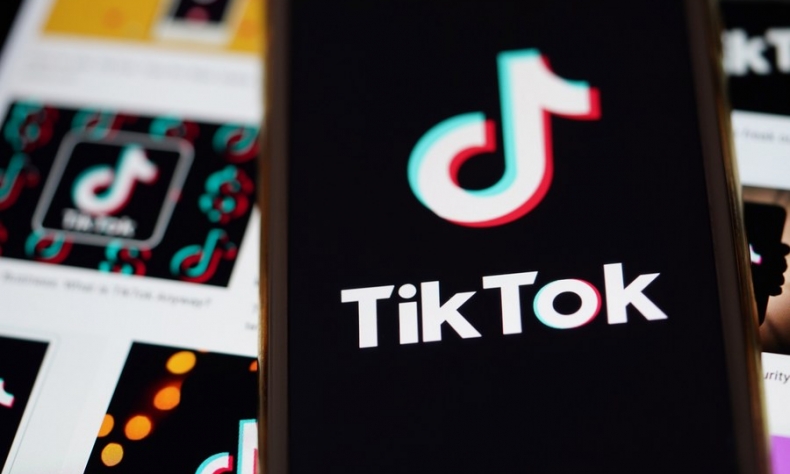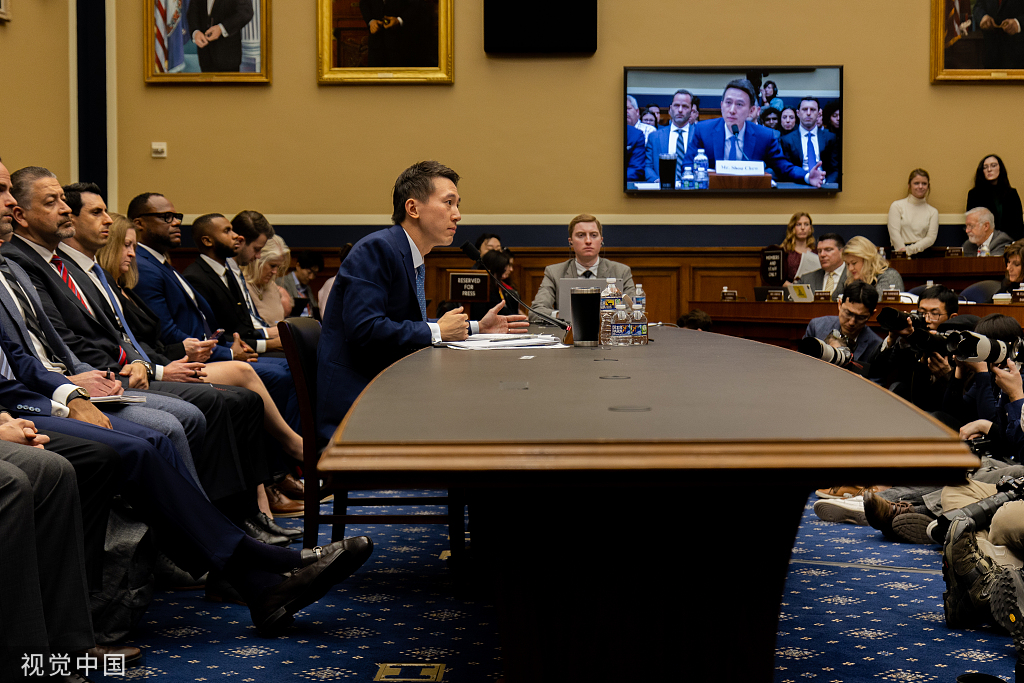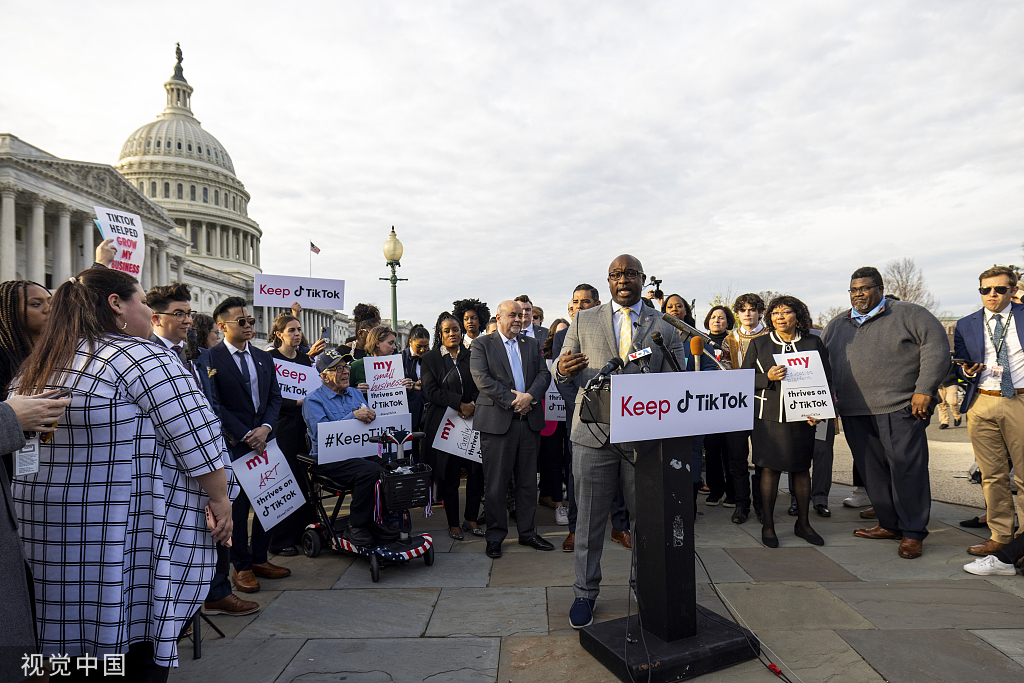U.S. Politicians Stand Keen to Ban TikTok: A Sign of Tech Protectionism

U.S. Congress stands intent on blocking TikTok and if they succeed the country will take another step forward on trade protectionism and increasing censorship on the American public.
In recent months, American politicians have raised the siren call to endorse a nationwide ban on TikTok, the popular video-sharing App that is owned by Beijing-based Byte Dance. The App has over 150 million registered users in the U.S. alone. Many members of U.S. Congress have warned that TikTok is a“national security threat” because its parent company hails from China.
According to their logic – TikTok works closely with the Chinese government on alleged schemes to share American user data for intelligence purposes. On-the-record, TikTok denies such scurrilous accusations.
The U.S. lawmakers making such allegations are acting hysterical and that demonstrates their apparent ignorance over the technical complexities of data storage in a globally interconnected economy.
Many U.S. elected officials have wrongly concluded that if a company comes from China it must be evil and if Chinese firms succeed in expanding their business operations in the U.S., they are conducting rampant surveillance and espionage for the CPC (Communist Party of China). Such extreme opinions and rationalizations sound silly but they are now the common perceptions among most Americans living and working in Washington D.C.’s political scene.
TikTok CEO Chew Shou Zi has just learned some hard lessons about American politics when he testified under oath on March 23 at hearings held by the U.S. House Committee on Energy and Commerce. He was grilled by committee members for over five hours. He faced an onslaught of outlandish questions about claims that China is spying on the U.S. and that TikTok stands accused of cooperating with Beijing in such nefarious schemes.
Ironically, Chew Shou Zi is not even a Chinese citizen but a Singaporean and was a former investment banker for the Wall Street giant, Goldman Sachs. He’s only 40 years old but he remained calm and rationally explained how TikTok is only a private enterprise and not a spying tool for Beijing.

Opening a pandora’s box of tech protectionism
The House Energy and Commerce Committee Chairwoman Cathy McMorris Rogers (R-WA) had no intentions to withhold judgement from the very start of the hearings. “TikTok surveils us all and the Chinese Communist Party is able to use this as a tool to manipulate America as a whole” she said in her opening statement. “We do not trust TikTok will ever embrace American values. Your platform should be banned.”
And the tough questions and criticisms kept rolling on from both Republican and Democrat committee members as they had displayed a rare moment of bipartisanship on Capitol Hill. The prevalent theme was that TikTok must be banned in the U.S., because it’s a Chinese-owned enterprise.
Mr. Chew had no chance to succeed since the Committee had only sought to engage in a political circus to humiliate him as U.S. Congress is pushing forward on legislation to force TikTok’s sale to an American company or block them if such efforts fail. Congress is preparing to vote on the U.S. Senate Bill 686, Restrict Act, that grants Executive authority to prohibit technologies from foreign adversaries, such as China, to enter the U.S. market.
The U.S. Commerce Department and the Office of the Director of the National Intelligence (DNI) can have authorization to shut down TikTok or any other technology companies that are foreign owned or operated. But if you think this legislation is only connected to TikTok, you are sorely mistaken. The bill is crafted with ambiguous language and could lead to outright bans of many other foreign-owned hi-tech firms. Additionally, the White House takes charge of a panel, the Committee on Foreign Investments in the U.S. (CFIUS).
So if the Restrict Act gets passed and signed by U.S. President Joe Biden, he could use CFIUS not only to block TikTok but any other foreign-owned company if they get officially labeled as a “national security threat.” Major U.S.-based hi-tech firms fearing rising competition could hire lobbyists in Washington D.C. to persuade CFIUS to block foreign-owned companies. Washington is ramping up trade protectionism measures and shouting “Blame China” to fool the voters. The Restrict Act is a very dangerous bill if it becomes the law.
Project Texas is the right solution
Meanwhile, TikTok has already taken proper steps to ease concerns over the potential of cyber-espionage by the Chinese government. Byte Dance is working on a deal with Austin-based Oracle to store all data from American users at cloud facilities in U.S. territory, while constructing a firewall that prevents foreign governments, including China, from gaining access to the data through third party channels.

TikTok has invested about $1.5 billion in the ‘Texas Project’ for a new subsidiary – TikTok U.S. Data Security – to ensure that only Oracle will have primary access to its American user data. Additionally, TikTok is deleting all its American user data from company servers in Virginia and Singapore, which were collected prior to last June when Oracle signed on to the data transmission agreement.
At the hearing, Chew said, “The protections are storing American data, on American soil, by an American company, looked after by American personnel.”
Nonetheless, Committee members were refusing to listen and ignored the evidence present to them. According to Politico, Rep. Frank Pallone (D-N.J.) — the top Democrat on the panel — remained skeptical: “The Chinese Communist government can compel companies based in Beijing, like TikTok, to share data with the Communist government through existing Beijing law or coercion.”
It should also be noted that Oracle senior executives could have testified at the hearings to support Chew’s claims. But the Committee was not interested in listening to the truth that day and Oracle’s employees were not called up as witnesses.
Many Americans don’t understand China
The hearings on TikTok clearly demonstrated how many smart Americans don’t have a basic understanding of China. Members of Congress are expected to hire aides who are required to conduct in-depth research and analysis on world events and geopolitical trends. Nonetheless, they remain remarkably clueless on all things China. They still think the days of the Cold War in the 1950s had never ended.
TikTok is a popular video sharing app among young Americans, but many U.S.officials continue to hold paranoid visions of a so-called ‘Red China’ conspiracy. Consequently, we are witnessing a huge age gap emerge between the youth and the elders in the country with TikTok emerging as the dividing line. The young people in the U.S. see TikTok as an amazing platform to show off their dance moves or to create fame as a Social Media superstar, while many older Americans look at TikTok with many suspicions.
Apparently, U.S. Congress stands intent on blocking TikTok and if they succeed the country will take another step forward on trade protectionism and increasing censorship on the American public. This is the wrong move and TikTok deserves to exist as a fully-functional video sharing App in America, where it’s supposed to be the land of the free.
The article reflects the author’s opinions, and not necessarily the views of China Focus.
 Facebook
Facebook
 Twitter
Twitter
 Linkedin
Linkedin
 Google +
Google +



